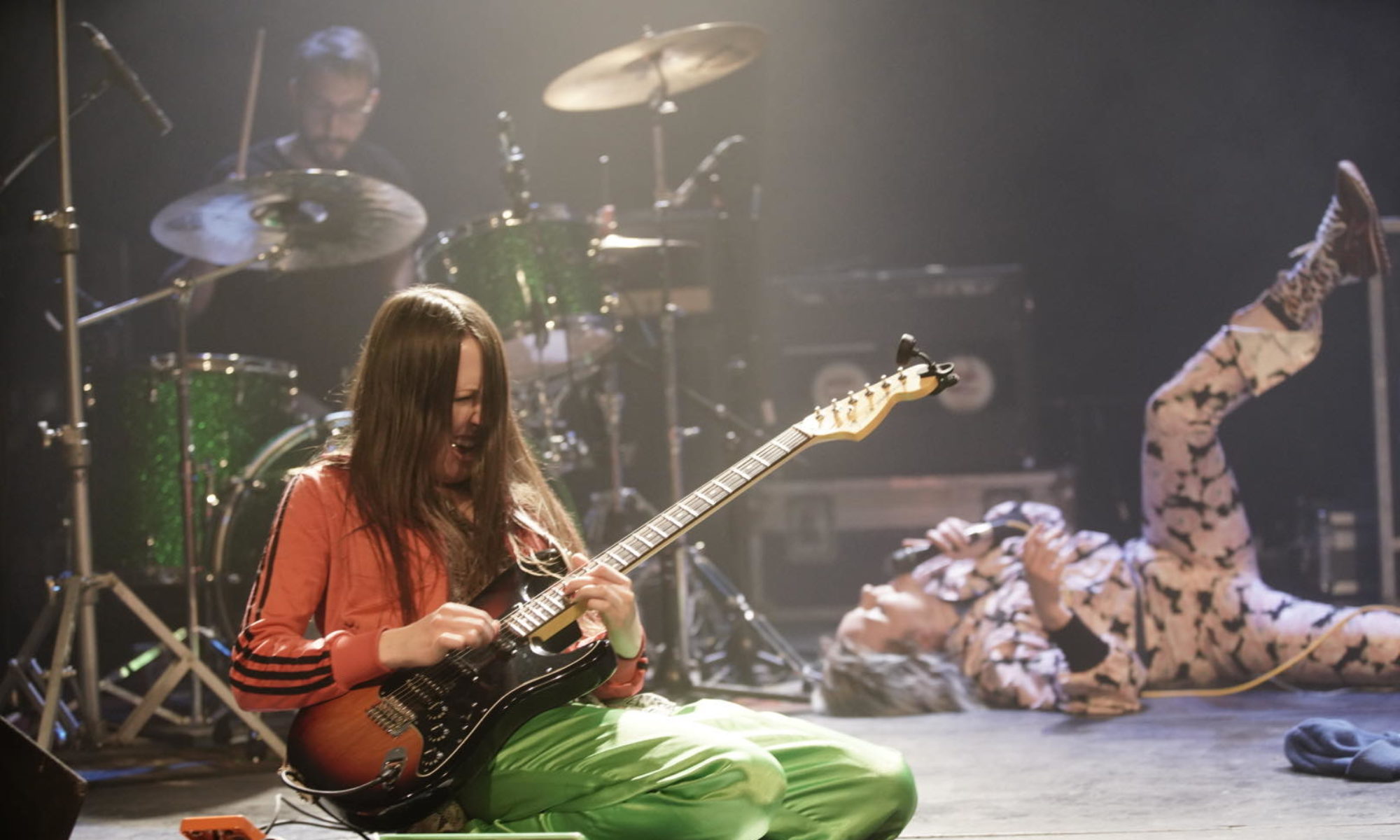By Jesse Blackman
Question: What do you get when you creatively combine the linguistic genius of one sister with the visual genius of another sister? Answer: a musical experience unlike any other.
Tasseomancy refers to the Lightmans’ great-great-grandmother who was a Russian Jew who lost her entire family in pogroms and fled to Canada; to help make ends meet during the Great Depression, she read tea leaves. Tasseomancy is a fancy name for that gift. Romy relates this to seven generations of mysticism in both First Nations and Jewish traditions–these ideas mirror the belief that “your actions will affect seven generations ahead” and “with every accomplishment you are looking back seven generations in order to” understand “the sacrifices” that were made. The sisters are “fans of tea and also anything else that can kind of bring people together… It’s less about stuff weighted by fate, and more so about maybe being honest with yourself in a certain situation–what would you see?”
Tasseomancy, the band, was born out of the desire of sisters Romy and Sari Lightman’s to expand the range of sound they could produce. “There’s like always threads,” Romy explained. “It’s a continuation of where we started with Ghost Bees,” but the sisters realized that when they only “play an acoustic guitar and a mandolin there is only so much tonality – and you can only be so dynamic. That music was really contained.”
Ghost Bees came out of the sisters’ time living out in Nova Scotia but when they moved home to the urban environment of Toronto the writing of folk songs felt “insincere.” Romy couldn’t “write songs on [her] guitar by the ocean anymore, living in downtown Toronto.” Before adding amplification, Ghost Bees could play anywhere, even on “lakes and haunted basements.” Romy feels that they cannot play in as many places anymore “because they aren’t as mobile now. Before we had a real nomadic spirit of like picking up an instrument and playing acoustic with no microphones, and like the sky’s the limit.”
In the brief time that I had to chat with Romy of Tasseomancy it became very clear that music was by no means the only focus of her life. When I asked about how the tour was going, Romy described it as feeling “infinite” because although they only recently began opening for Austra, they have been touring as back-up vocalists for the group for weeks. In contrast to playing in Miami, the cold weather and snow that caused shows to be cancelled in the interior of British Columbia was “humbling because you recognise your limitations as a human, you know? Even in the time when we’re all on our laptops, and really connected.” Speaking to the lifestyle of a traveling band, Romy feels “like we’re pioneers or settlers.” She said that the members of Tasseo “are living the antithesis of life – that lifestyle right? We’re so wide, and we’re going all over the world. Once we get back to Canada, the next day we’re going to Europe and after that Australia and Singapore. So we’re living this really unnatural existence.”
Romy also spoke about her feelings towards the world we live in. She expressed scepticism about the future because of the “crumbling empire” she experienced and “everyone can feel” in the United States. However, “Exciting things are happening like the Occupy Wall Street. It really feels like there is a revolution.” Furthermore, she spoke passionately about the wastefulness of the life of a traveling musician, from the litres of gas to the bottled water they’re drinking. And although Romy doesn’t think America is “post-apocalyptic, yet,” she says she is a bit fearful.
Throughout their American travels Romy has used “a very superficial form of documentation. Because we’re on tour and moving around so much, I’ve been taking a disposable camera, you know, trying not to be too vain with it. And after looking at least at this leg in the States, everything I had tended to look very ugly, I had all these harsh images.” As an art school drop-out who is attracted to beauty, Romy senses a profound power in her images, but also feels that they cannot be called photo journalism because she doesn’t think she is “necessarily capturing the truth.” Growing up in the’80s with a lot of plastic has played a part in helping Romy see the beauty in “the grotesqueness of all the garbage.” Beyond this idea; “The music that is coming out right now is a reflection of that. A lot of things out there are gross and abrasive like electronic music. But as I listen more I understand that there is a reason that maybe all of the music is kind of dethatched and a bit harsh. I think in a way it vocalizes the existential crisis that maybe we’re all enduring.”
Today’s “Tasseo shows” have a strong electronic feel with the addition of percussion and synth, and furthermore Romy says that these shows “are things that I think that we can actually – we’re really interested in creating full sensory environments. We’re really into site-specific installation but we kind of like to make them ourselves.”
That is “the next stage as opposed to finding cool places to play in” continues Romy. These “realms” include spaces with visuals made by artists and various smells created from teas, all this in order to create “surreal psychedelic experiences.” The passion in her voice when Romy describe these shows is genuine.
Clearly there are many profound ideas to grapple with here, and certainly at their upcoming show: Tasseomancy is playing at WECC on November 24 with Austra and Young Galaxy. Tickets are $12 in advance and $15 at the door.


